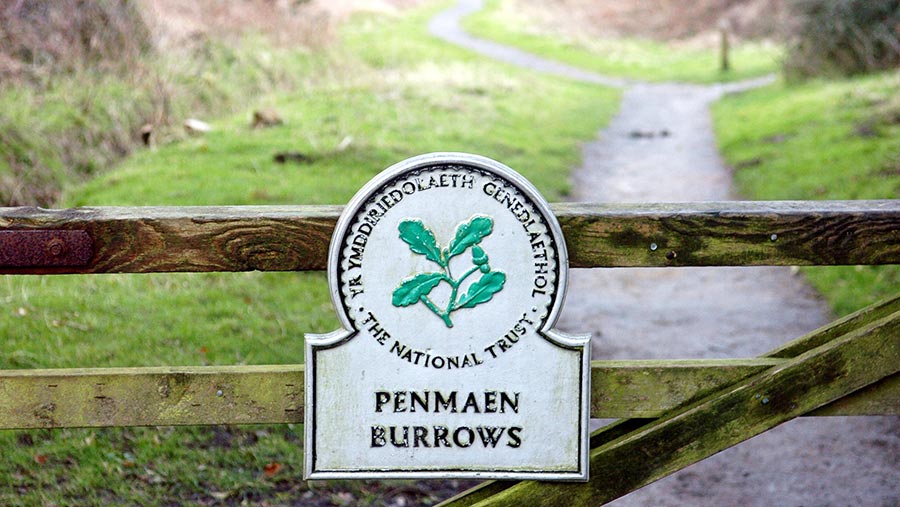National Trust demands an end to direct farm subsidies
 National Trust symbol at Penmaen Burrows, Gower Peninsula, Wales © REX/Shutterstock
National Trust symbol at Penmaen Burrows, Gower Peninsula, Wales © REX/Shutterstock Farmers should only be rewarded for managing land in a nature-friendly way, and direct income supports should be removed altogether in a post-Brexit rural policy, says the National Trust.
Presenting the trust’s views at this week’s Countryfile Live event at Blenheim Palace, Oxfordshire, director general Dame Helen Ghosh said major reform was essential “to reverse decades of damage to the countryside and the headlong decline of species”.
“Whatever your view of Brexit, it gives us an opportunity to think again about how and why we use public money to create the countryside we want to hand on to future generations.
See also: Farmers a major target for cyber crooks
“Taxpayers should only pay public subsidy to farmers in return for things that the market won’t pay for, but are valued and needed by the public.
National Trust’s six priorities
1. Public money must only pay for public goods.
2. It should be unacceptable to harm nature, but easy to help it.
3. Nature should be abundant everywhere.
4. We need to drive better outcomes for nature, thinking long-term and on a large scale
5. Farmers that deliver the most public benefit, should get the most.
6. We must invest in science, new technology and new markets that help nature.
“That means payments for goods that go beyond food production – for the wildflowers, bees and butterflies that we love, for the farmland birds now threatened, for the water-meadows and meandering rivers that will help prevent the flooding of our towns.”
Dame Ghosh insisted there was no conflict between maintaining an ability to grow food and looking after the land and nature on which it depends. “The first is utterly dependent on the second.”
“Farmers are key partners in finding solutions, but this is too important to leave to governments and farmers to sort out between themselves.”
The policy chimes with many of the aims of other environmental lobby groups, such as the RSPB, but it has triggered an angry response from farmer representatives.
NFU president Meurig Raymond said: “The picture the National Trust is trying to paint – that of a damaged countryside – is one that neither I nor most farmers, or visitors to the countryside, will recognise.
“Farmers have planted or restored 30,000km of hedgerows, for example, and have increased the number of nectar and pollen rich areas by 134% in the past two years.
“Farmers take their responsibilities as custodians of the countryside seriously. But in this debate we must not forget that food production is vital. We should not be contemplating doing anything which will undermine British farming’s competitiveness or its ability to produce food.
To do so would risk exporting food production out of Britain and for Britain to be a nation which relies even further on imports to feed itself.”
Mr Raymond added that NFU survey work showed the British public wanted to buy more British food and they believed farmers played a beneficial role in improving the environment.
